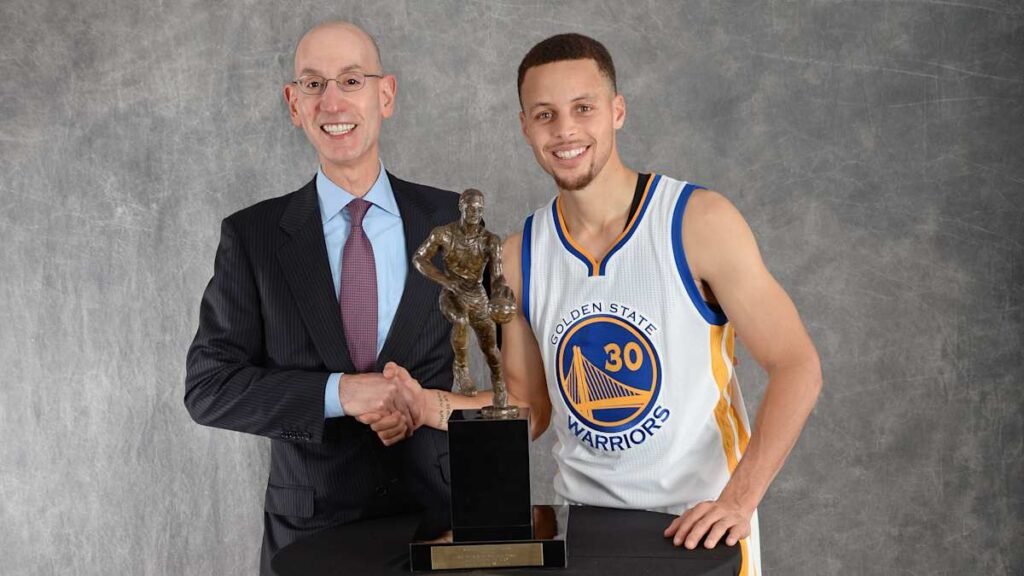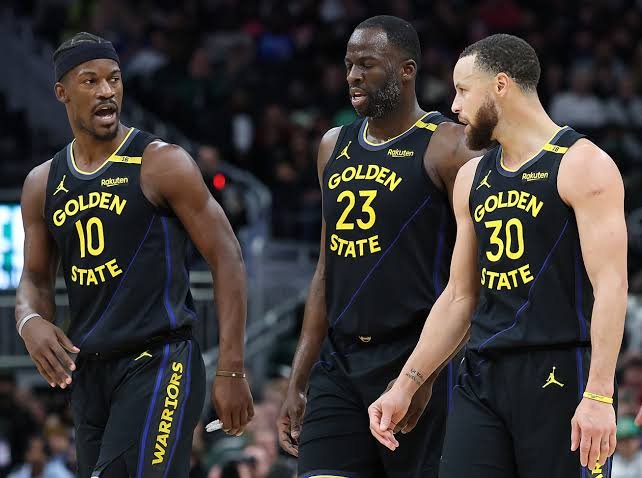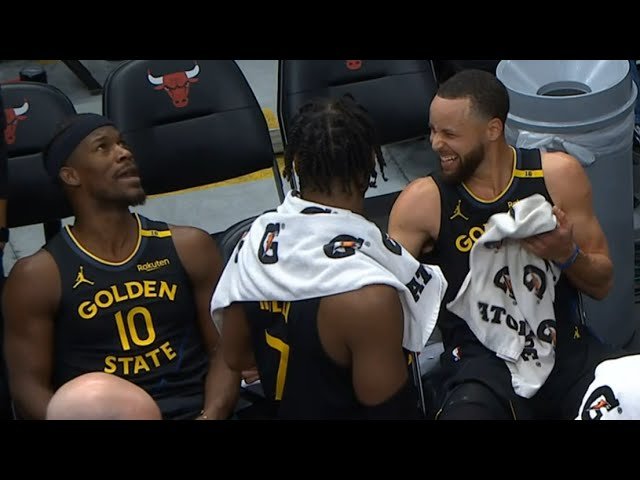
Golden State Warriors star Steph Curry addressed reporters during NBA All-Star Media Day on Saturday at Oakland Arena.
SAN FRANCISCO –
When NBA commissioner Adam Silver remarked on Saturday that if he were a player for one day, he would “cease complaining about officials,” laughter erupted in the room. He even smiled. Maybe it’s because he realizes there’s no possibility of having his desire fulfilled.
There is no chance in the world that NBA players will suddenly stop commenting on officiating. Challenging calls is inherent to the game, as it has been since the very first dribble of a ball. Arguing about calls is the background noise of playgrounds and gyms throughout America.
Debates over officiating will persist as long as the well-known inquisitive and notoriously combative Andre Iguodala holds the position of executive director of the National Basketball Players Association (NBPA). As long as renowned players such as Stephen Curry and Damian Lillard are utilizing their usually balanced tones to convey a wish for increased player freedom and a clearer officiating system.
Curry, known for his sharp shooting and high basketball IQ, has always been vocal about the game’s structure, and officiating is no exception.
“I’d likely want to review the refs’ grading system and make it more public, similar to how our stats are displayed every night,” Curry mentioned Saturday during Media Day at All-Star Weekend.
The NBA assesses referees consistently, though the procedure is confidential. Thus are the outcomes. The league indicates that the best method to assess the skill level of officials is by examining their assignments during the postseason.
If an official is included in the 36 on the postseason roster, it subtly criticizes their performance. The 12 officials present at the NBA Finals undoubtedly understand that the league views them as the top choices.
However, according to Silver, making the evaluations public – something no major American sports league does – is excessively transparent.
“Everyone here is acquainted with human resources matters,” Silver stated. “And not everyone necessarily desires to have their work history made public.” I believe we simply need to discover the appropriate balance in that situation.
Curry, on the other hand, believes transparency would benefit both players and fans.
“Not to complicate their work further, as it’s truly a tough job,” Curry remarked. “However, it would be fascinating from both a fan and player standpoint to understand what makes a referee a great one and how they evaluate their rating system somewhat.”
Players possess different degrees of respect for officials depending on their personal experiences. They classify them into various groups, like fair or terrible, haughty or friendly, understated or attention-seeking.
Lillard, if he held the position of commissioner with the power to implement one change, would seek greater transparency in a fining process that many have suggested is excessively subjective.
“I would alter some aspects of the fining system,” he stated. “I sense that we are punished for nearly all aspects tied to the game’s emotions.”
Draymond Green would concur. Kevin Durant, Anthony Edwards, Jayson Tatum, Ja Morant, Trae Young, and numerous others would too.
The NBA will always protect its officials from public examination, yet second-guessing is an aspect of the game. It serves as a hobby in itself, akin to discussing music artists or trends in fashion. The commissioner, beneath it all, understands that. Alternatively, he ought to. It’s staying right here. Neither should it.
Curry’s call for transparency won’t be ignored, but it also won’t be immediately acted upon. The discussion will continue, but the league is unlikely to make drastic changes anytime soon.


